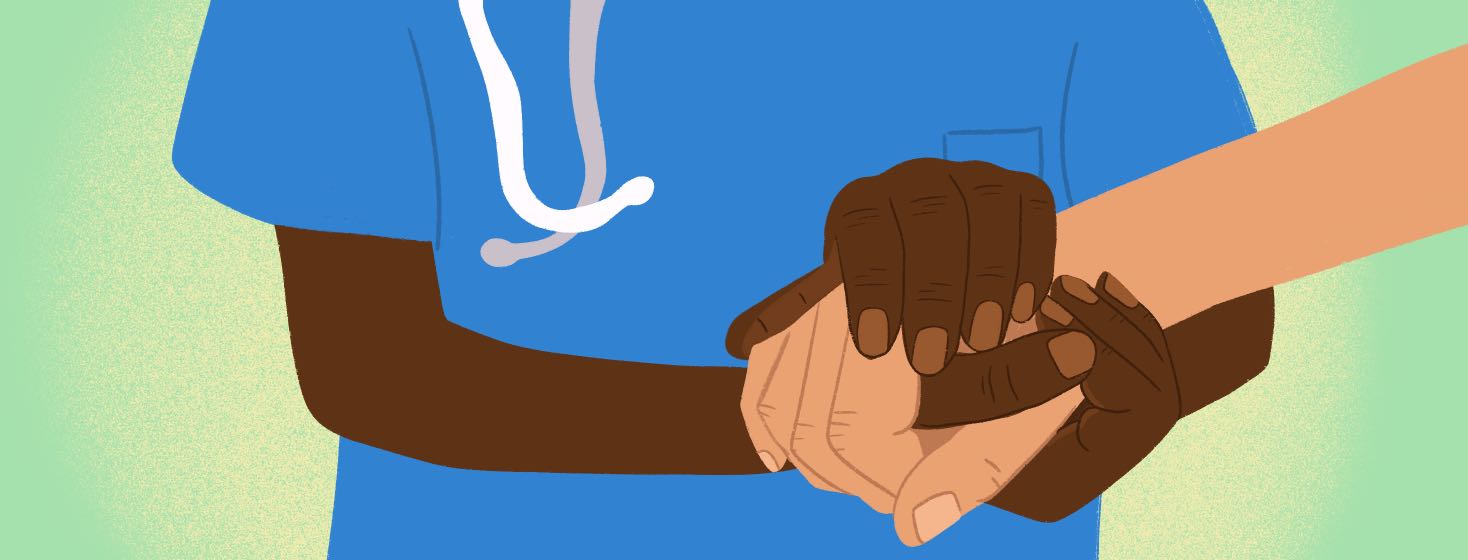The Other Caregiver Heroes
I’ve shared my thoughts on several occasions about being a caregiver. My husband still battles prostate and bladder cancer, and my oldest daughter is still fighting breast cancer. Being a caregiver is hard. We are asked to do things we never thought we would have to do or are ill-equipped to do.
But here I want to highlight the other caregivers, the ones who struggled to further their medical education and experience to be able to help patients like those on this site.
A thank you to nurses
Nurses have sacrificed their time, energy, and their finances to become effective at their jobs, to give all of us the care we need when a medical crisis happens. Many wanted to be nurses even as children, and as they grew into adulthood, continued to pursue that dream. It’s not an easy goal, but to many, at that time, it was worth the sacrifice and struggle to achieve their lifelong desire and ambition to help sick people.
Sadly, many nurses are now leaving the profession. I’m not a nurse, but based on stories and testimonies I’ve read and heard, being a nurse is, and always has been, a demanding and exhausting job. The stress on time, emotions, and physical and mental health as a result of COVID exacerbated those demands and have left many nurses feeling helpless and overwhelmed.
It can be an overwhelming job
They feared for their health, not only in terms of catching the virus themselves but bringing it home to their families. They recognized the physical wear on their bodies, minds and souls, spending hours taking care of others when there was no time or energy left to take care of themselves. They continually struggled with the emotional toll of seeing patients suffer with the disease with little help to be given, working with families who tried to cope as loved ones battled, or lost their COVID battle.
In recent years, nurses have been leaving the profession at an alarming rate. A friend of mine looked forward to a long rewarding career as a nurse, but she quickly lost sight of why she wanted to be a nurse in the first place when reality took over. Another friend left the profession because seeing the suffering around her, and her limited ability to help, was unbearable.
I don’t blame anyone for their choices and don’t have to look far to understand their reasons. But that leaves a big problem and increases the burden on the nurses who choose to remain in their profession.
Nurses play a huge role in our care
Nurses play such a significant role in the medical profession. Their skills and expertise are needed to make our medical systems flow smoothly from administration to communications to the operating room and all areas in between. Yet their work and contributions are often undervalued or not recognized, not only by the institutions where they work but by patients and families as well.
I don’t think nurses expect to hear thanks for everything they do (although that would be a nice change). But I do think we should be more aware of the importance of their role and their part in making our healthcare experience a better one, and we should be appreciative.
I recently had surgery and saw that I spent a greater percentage of time with nurses than I did with the doctors. I also saw how they had to literally run from one patient room to the next to manage the surgery prep work and take care of patient needs. I heard patients and families getting frustrated with the nurses because their needs, not life-threatening, were not immediately met. I saw nurses arrive early in the morning and leave late at night. The exhaustion and strain on their faces was undeniable.
Recognizing their efforts
I say this just to ask those of us who are patients – and our numbers are high – to be sure to recognize and thank all our caregivers: those at home and those whose chosen profession is to help others who are not members of their family but who need them as well. There are heroes everywhere. Let's be sure we see them for who they are.

Join the conversation